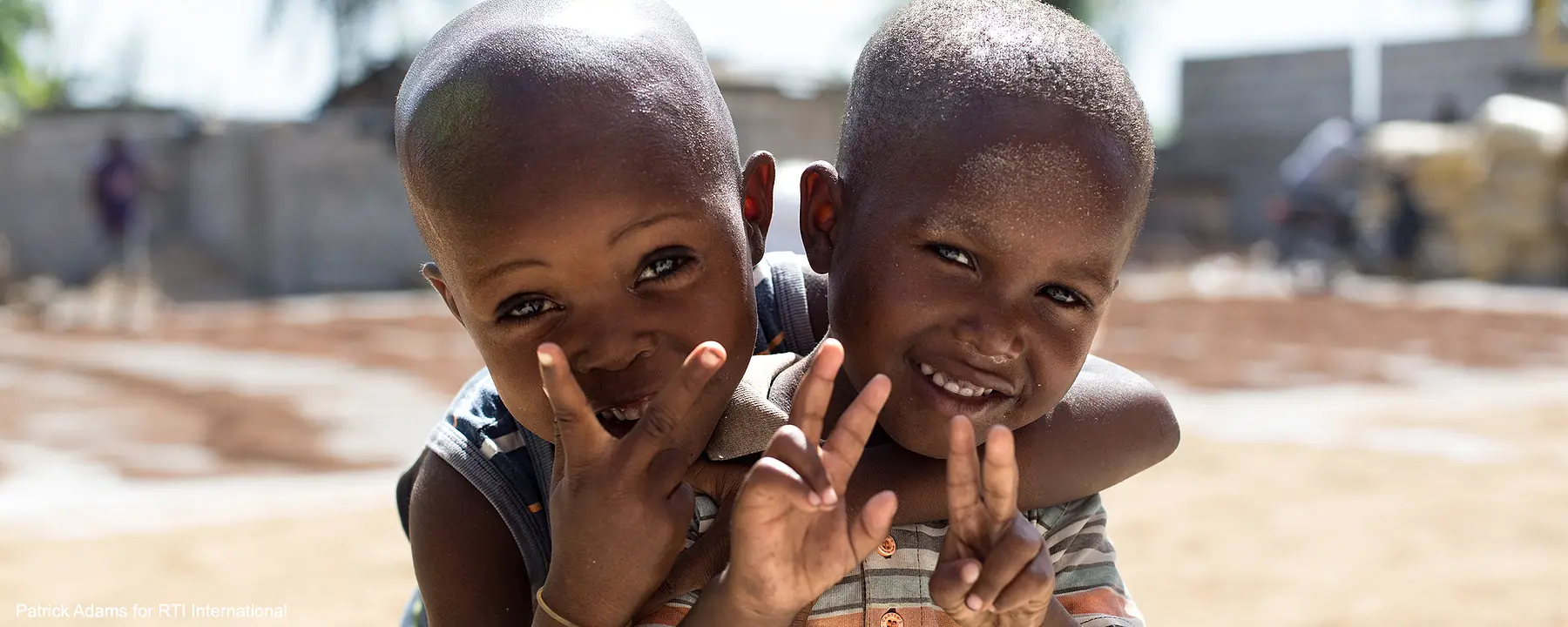GERÉ: Focused on making the Haitian government more responsive and inclusive
Haiti, one of the largest countries in the Caribbean, has a complex history marked by instability, political upheaval, gang control, natural disasters, widespread poverty, and corruption. While modest gains have been made in some sectors, much progress remains before Haiti is a stable and vibrant economy.
In February 2019, the U.S. Agency for International Development (USAID) launched a three-year project to improve governance. Implemented by RTI, USAID’s Project Supporting the Efficient Management of State Resources (GERÉ) aimed to improve good governance by using a creative approach based on an applied political economy analysis (PEA). Given the complex, frequently changing landscape, RTI focused on using an adaptive management style and embedding gender equity and social inclusion into activities.
By incorporating RTI’s previous experience with facilitated, adaptive programming in Haiti and other dynamic environments, the GERÉ project was better prepared to navigate the evolving political landscape in Haiti, adjust activities during the COVID-19 pandemic, and be responsive to Government of Haiti priorities.
Impact: Supported Locally Led and Locally Owned Solutions
GERÉ focused on locally led and locally owned development, including:
- Improved select government entities’ ability to manage and mobilize resources in order to improve the delivery of basic services to citizens.
- Increased collaboration and engagement between citizens, civil society, the private sector, and government to define and address development priorities.
- Improved communication, collaboration, and coordination across and between levels of government—and with parliament—on policy, budget, and service delivery issues.
GERÉ was designed using innovative and relatively new approaches at USAID at the time, including a six-month inception period, applied PEA, and a focus on adaptive management.
The GERÉ team itself was 100% Haitian and worked with two Haitian subcontractor partners. This allowed the project to deliver activities that were highly tailored to the local context and driven by strong relationships with the local and national governments, civil society, and private sector counterparts.
GERÉ’s successful inception phase included consultations with more than 75 local and national government, community, civil society, and private sector leaders and citizen representatives; assessments of 50 potential communes as partners; and completion of a rapid applied PEA and Gender Equity and Social Inclusion (GESI) assessment.
Key GERÉ Technical Results:
 Enabled three communes to organize public hearings with more than 160 citizens to engage in public dialogue and civic participation. These hearings were spaces for constructive and transparent exchange, public deliberation, and negotiation on local priorities and public resource allocation.
Enabled three communes to organize public hearings with more than 160 citizens to engage in public dialogue and civic participation. These hearings were spaces for constructive and transparent exchange, public deliberation, and negotiation on local priorities and public resource allocation.- Helped to launch an improved CIVITAX system in five communes to increase the capacity of the municipalities’ fiscal departments through information technology training and equipment.
- Supported the establishment, recruitment, and training of a new audit unit in partnership with the National Commission for Public Procurement to undertake systematic audits of public procurements at local and central levels.
- Enabled the COVIGILANCE civil society consortium, led by the Civil Society Initiative, to conduct an audit of government entities that managed the coronavirus disease 2019 fund and produce a report and communication on government actions and recommendations.
- Engaged civil society in the national budgeting process to assist the Ministry of Economy and Finance to improve citizen participation and transparency in government transactions in partnership with Papyrus and Groupe Croissance.
Impact: Tax revenues increased in target communes to enable service delivery
Most communes in Haiti have very few resources, making it challenging to provide basic services, such as potable water, electricity, and efficient waste management to its citizens. These resources are supposed to come primarily from the collection of taxes. However, tax collection rates are low, due to a lack of financial means, poor fiscal education, and a lack of trust in local authorities to effectively manage communal funds.
When the GERÉ project contacted Cap-Haïtien to support tax mobilization efforts in the commune, the mayor was ecstatic. “This project came about in a context where the commune administration finds it very difficult to pay its employees and provide services due to a lack of necessary materials to effectively carry out its mandate,” stated Mayor of Cap-Haïtien, Yvrose Pierre, Haiti’s first elected female mayor. [Read more about Mayor Pierre’s journey.]
The GERÉ project took a multi-pronged capacity development approach to fiscal mobilization:
- Supported a diagnosis of the town hall fiscal services (tax department) and toponymic surveying to identify streets and properties for the census of taxable properties and businesses.
- Conducted a fiscal potential assessment to identify the potential sources of tax revenue
- Provided support to the communes to hold public hearings.
Mayor Pierre shared, “Capacity development allowed us to strengthen our administration to become more self-sufficient and to implement two major flagship projects: a new public market to decongest streets of our beautiful historic city and facilitate the rehabilitation of the Toussaint Louverture public square.”
Impact: Pivoting GERÉ programming to respond to the COVID-19 pandemic
To improve capacity of local authorities in Haitian communes and to respond better to citizens’ needs, the GERÉ project partnered with Viamo, a digital platform, to conduct a series of focus groups with stakeholder groups and experts to determine gaps in knowledge and best practices, as well as to facilitate learning among the authorities and citizens to serve as the foundation for remote training sessions.
Originally planned as eight in-person sessions, GERÉ adapted the plan during the COVID-19 pandemic to remote sessions. The training focused on good governance, the duties of communal authorities, budget preparation, and the importance of being responsive to the local population.
As citizens often incorrectly attribute responsibilities to communes that are not within their roles and responsibilities, one module focused on the importance of collaborative relationships between the authorities and the population. This inspired the Mayor of Saint-Raphael to hold public hearings to better inform citizens of town hall activities.
Another module on budget preparation enabled Reginald Pierre, a member of Tabarre commune and local government, to improve his ability to track the budget and where money was being allocated.
- U.S. Agency for International Development (USAID)
- Institut de Formation et de Services (IFOS; Training and Services Institute) and the Centre de Formation et d’Encadrement Technique (CFET; Technical Training and Development Center)


